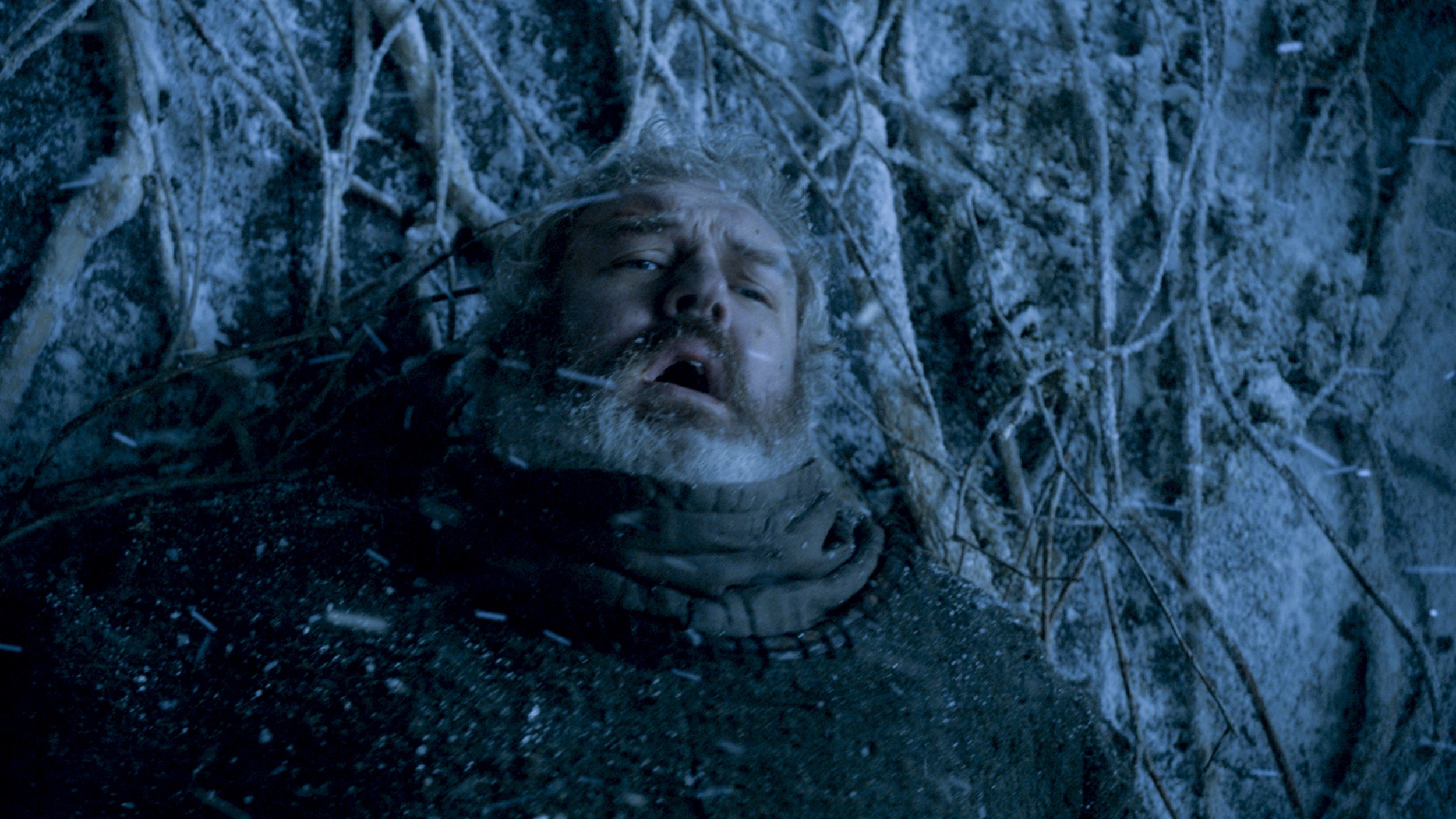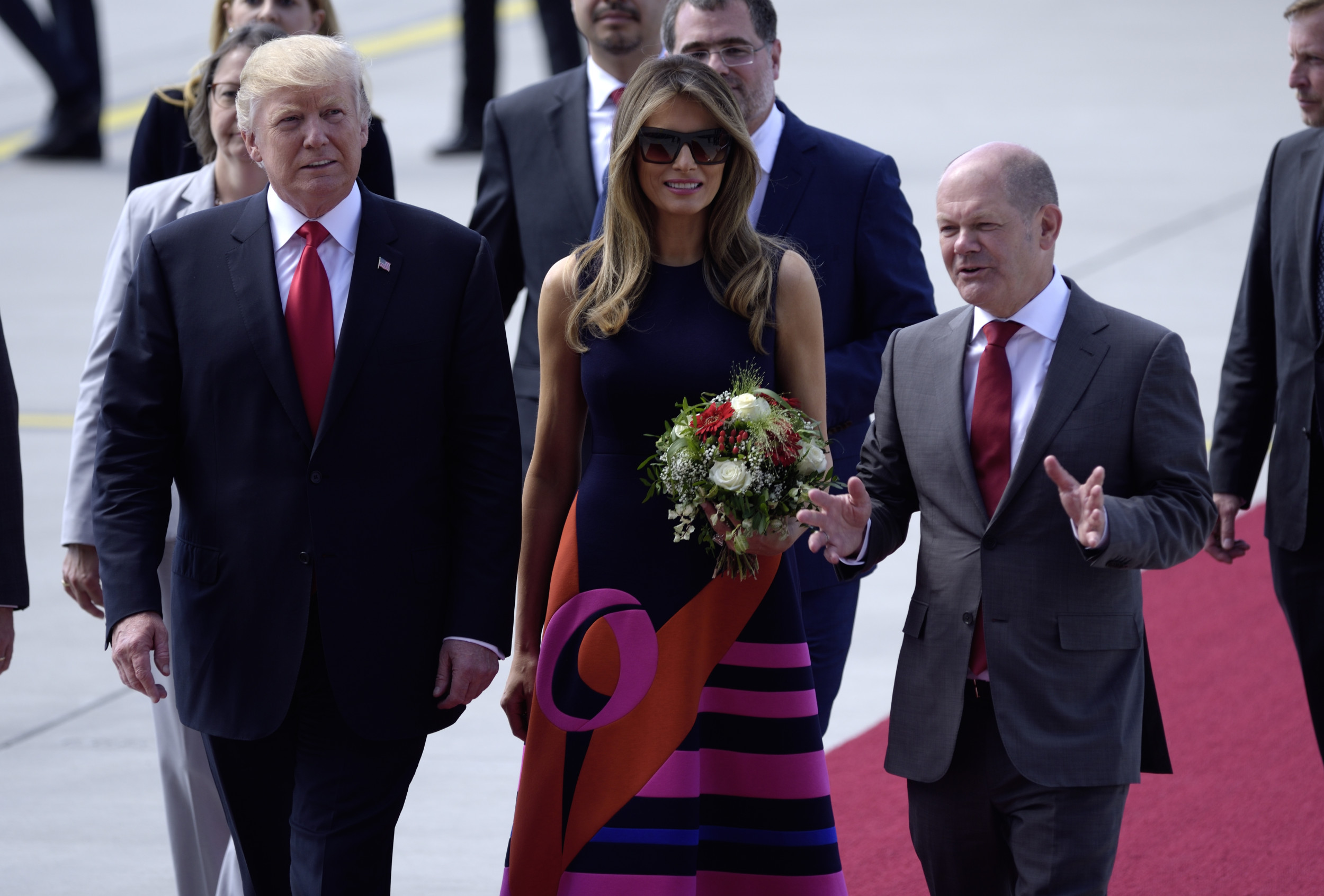
Meet Euron Greyjoy. He's going to make the Iron Islands great again. On Sunday's episode of Game of Thrones, Euron, fresh off his regicide/fratricide two-fer, crashes the kingsmoot (a sort of Iowa caucus-Election Day mashup) on the island of Pyke and boldly declares his intention to rule his people, the Storm-born.
A self-proclaimed political outsider, Greyjoy hurls insults at his nephew, Theon, figuratively emasculating someone who has already experienced the unkindest cut. This prodigal uncle brashly scoffs at the presumptive front-runner, his niece Yara, a woman who may be overqualified for the job. Euron makes no apology that he made this kingsmoot necessary by killing their father, Balon Greyjoy, creating a vacancy on the salt throne. "I apologize to you all for not killing him years ago," proclaims Euron smugly.
Euron Greyjoy is blunt, brash and boorish. He boasts about the grandeur of his manhood, not even bothering to employ a euphemism about the size of his hands. While he does not explicitly belittle Theon for having been Ramsay Bolton's prisoner (I like Greyjoys who didn't get captured?), he implies it. The assembled voters are apathetic to Euron's "gallivanting" or even to the fact that he just murdered their king—and blithely copped to it. No one even beseeches him to show his tax returns.
"I wasn't born to be king," declares Euron, "but I paid the iron price, and here I stand." One can only assume Euron is funding his own campaign.
It is a testament to Game of Thrones's brilliance that it is both a window to the supernatural and a mirror to reality, often in the same episode. While Sunday night's installment, "The Door," featured time travel and zombie warriors, it also involved a contentious election and a race for a cure for a deadly disease (gird yourselves for Greyscale Awareness month).
Throughout the series' five-plus seasons, showrunners David Benioff and D.B. Weiss have always welcomed the opportunity to draw parallels between the template and current events. After all, Benioff and Weiss did not create the former; George R.R. Martin did. The first book of Martin's A Song of Ice and Fire series, currently at five books and counting, was published in 1996. The fourth book, A Feast for Crows, which showcased the kingsmoot, was published in 2005, back when the nastiest thing Donald Trump ever said on television was "You're fired."
Unless Martin himself is capable of warging, he could not have foreseen a 2016 election coinciding with the sixth season of a TV series based on his epic novels that happened to dovetail (raven-tail?) so closely to the show's particulars. To Martin's further credit, the book version of the kingsmoot features an older third candidate, Victarion Greyjoy, whom Benioff and Weiss wrote out of the episode. The Bernie Sanders subplot is only so compelling.
The kingsmoot is hardly GoT's first serendipitous brush with current events. Long before Trump declared that he was "gonna build a wall," Westeros already had one that stood 800-feet tall and was composed entirely of ice. Last season it was Lord Commander of the Night's Watch Jon Snow who opened the gates of that wall to allow the human inhabitants north of the wall, the Wildlings, to pass through.
Political and Westerosi scholars will quibble as to whether Lord Snow's gesture smacked of being soft on illegal immigration or was a brilliant tactical move designed to subvert an even more ominous threat (the White Walkers). Snow, of whom Benioff has said, "He can't help but do the right thing; that's why we love him," built a bridge between two peoples by opening a tunnel, but he paid for that gesture with his life. This being Sunday night television, though, Snow was granted a second chance at existence. Real-life political doves are not afforded that privilege.
Another theme that first Martin and now Benioff and Weiss have repeatedly explored, and did so again on Sunday's episode, is the idea that maneuvers made purely for the sake of expedience have a way of coming back to bite you. Down in King's Landing, Cersei Lannister—who once created an alliance with a sect of religious fanatics known as the Sparrows—now finds her family's royal fate hanging in the balance because of a feud with them. Up north, the Children of the Forest, who long ago created the White Walkers as a supernatural warrior tribe to combat mankind, meet their end at the hands of their Frankenstein monster.
Closer to home, the first Republican debate last August began with a question to all candidates asking them to pledge, if they were to fail to secure the nomination, fealty to the GOP nominee. It was a question aimed squarely at the most likely third-party candidate at the time, Trump. (To his credit, he was the lone candidate to object to making the pledge.) But now he is the nominee. The Grand Old Party has been undermined, to a degree, by its own loyalty oath.
And what was the aftermath of The Big Short other than to reveal that, at the time, it was easier to simply bail out the banks than to rectify the root cause of the subprime mortgage catastrophe. You hav to imagine that back in Westeros, the Iron Bank of Braavos is also too big to fail.
And so while we lament the demise of Hodor, whom we assumed for five seasons was an overgrown simpleton but was in fact a messianic figure who all along knew the prophecy of his own death, we continue to be captivated by Game of Thrones. We watch to see what will become of our favorite characters and, in a sense, what will become of us.
Oh, and by the way, Euron Greyjoy won the kingsmoot. The last we saw of Yara and her brother, Theon, they were sailing away...presumably to the Westerosi equivalent of Canada.
Uncommon Knowledge
Newsweek is committed to challenging conventional wisdom and finding connections in the search for common ground.
Newsweek is committed to challenging conventional wisdom and finding connections in the search for common ground.
About the writer
John Walters is a writer and author, primarily of sports. He worked at Sports Illustrated for 15 years, and also ... Read more
To read how Newsweek uses AI as a newsroom tool, Click here.








